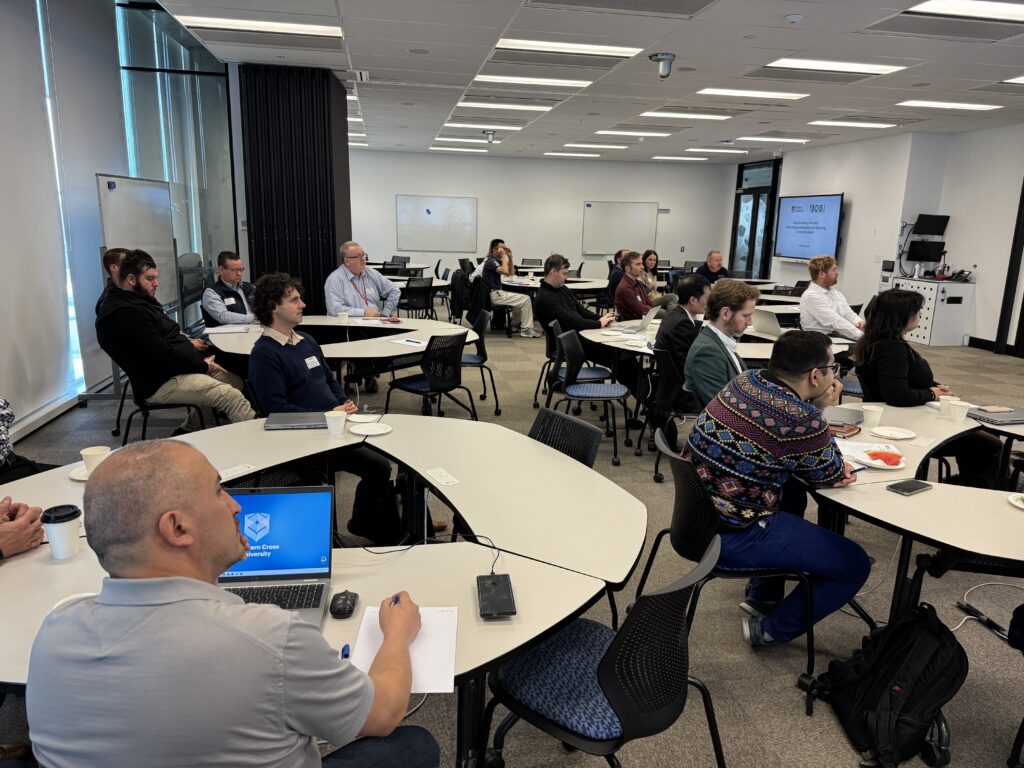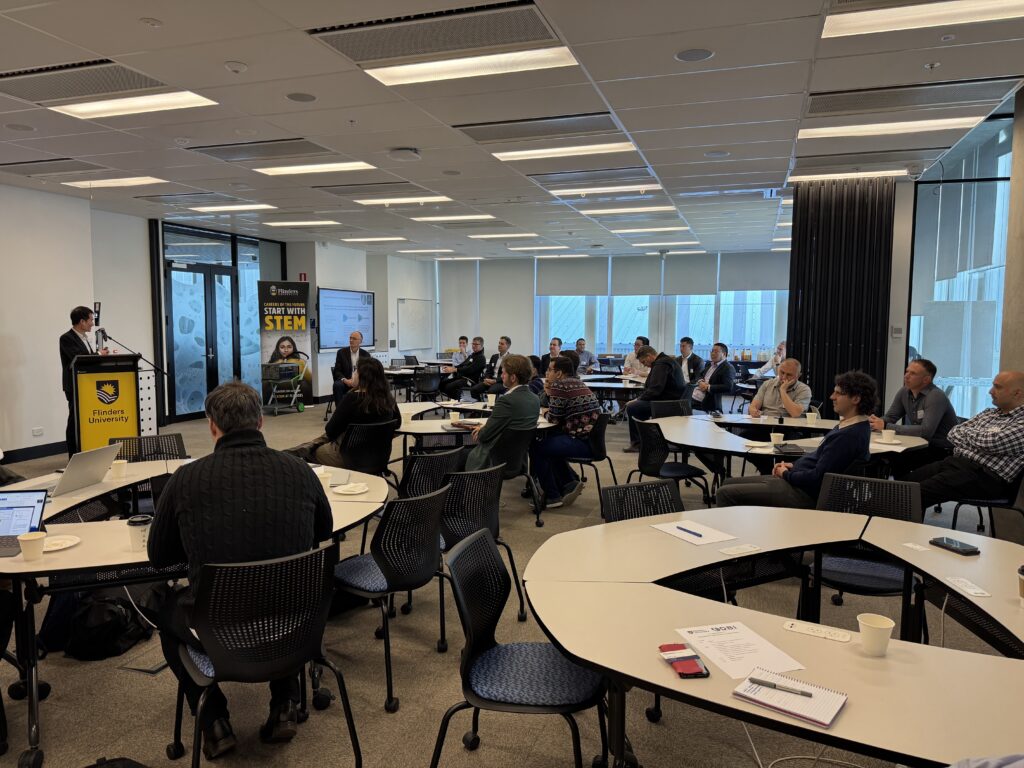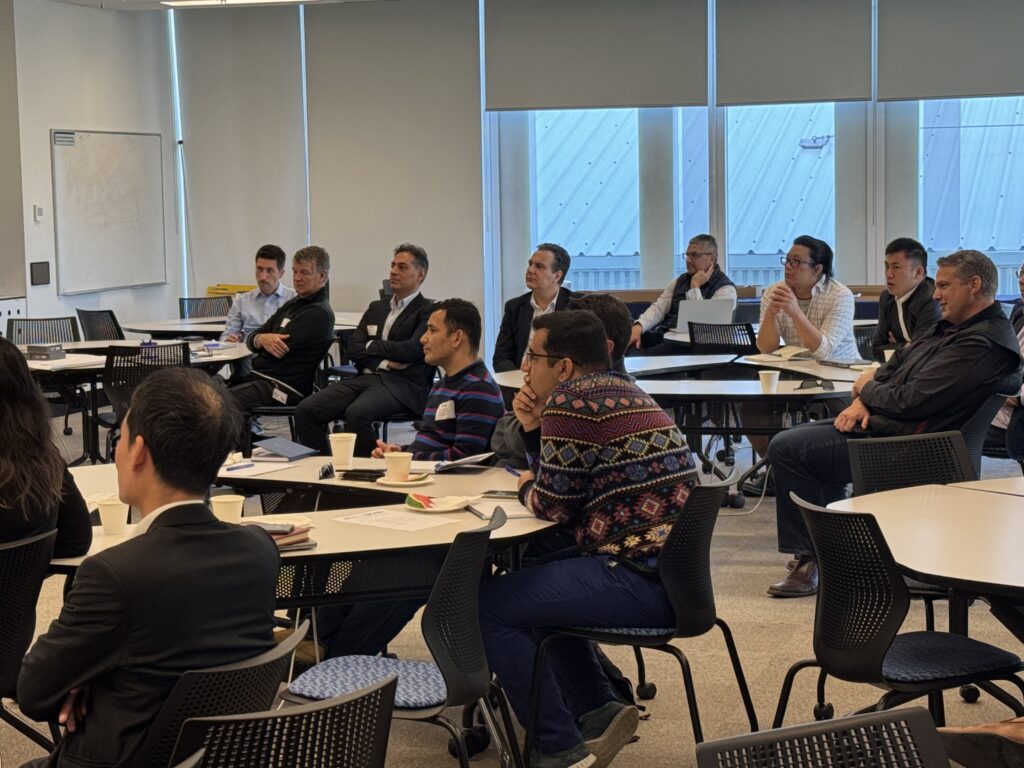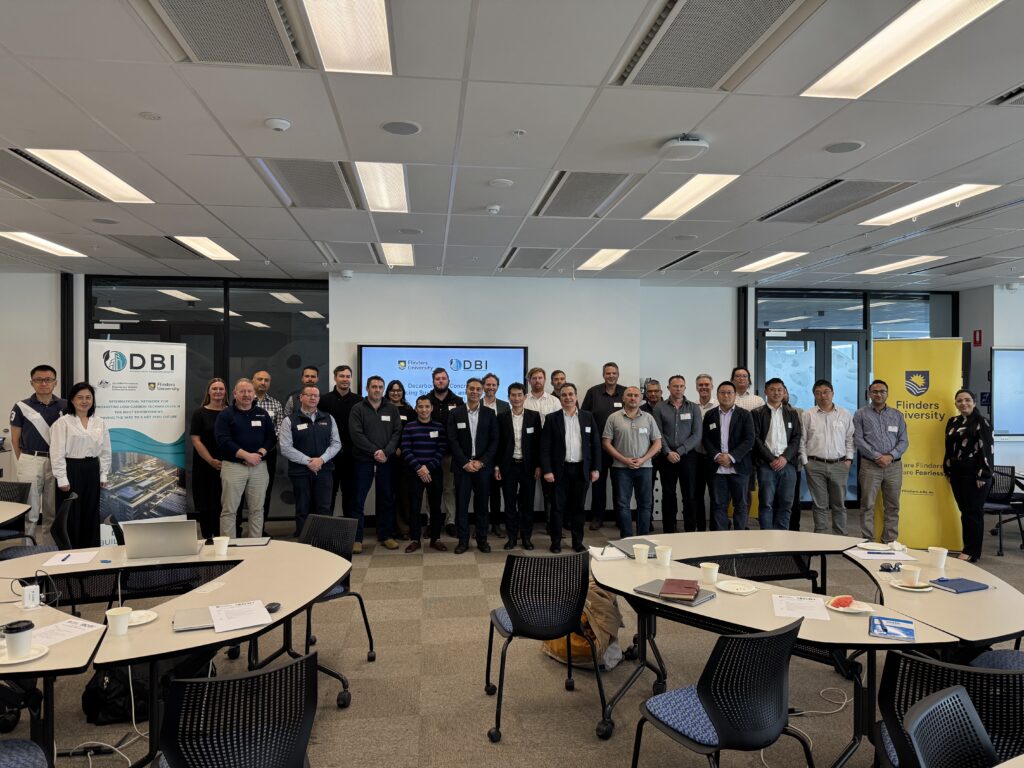Event date: September 27, 2024
Flinders University hosted a decarbonising concrete workshop on 27 September 2024 at the College of Science and Engineering. Attendees were from construction, concrete and recycling industries, government and academia to discuss innovative approaches and practical solutions tailored to the unique needs of construction and recycling, particularly the enablers for green building infrastructure such as waste-to-resources. The workshop aimed at learning from experts, sharing different ideas, and bridging the gaps on collaborating for innovative solutions to make concrete the key construction material in green buildings and constructions.

Morning presentations
Initially, Dr Aliakbar Gholampour talked about the aim of the workshop and highlighted the urgent need for decarbonising concrete to achieve net-zero targets by 2050. Then, Professor Alistair Rendell as the College of Science and Engineering Vice President and Executive Dean welcomed the attendees to Flinders University. Professor Tuan Ngo as the DBI Convenor introduced DBI initiative and its aims and programs. David Law as the Integrated Sustainability Practice Leader at Aurecon talked about a designer’s perspective on the use of decarbonised concrete. Mitchell Bacon as the Environmental Development Manager at ResourceCo discussed ResourceCo’s perspective for recycling glass and other waste materials for the utilisation in concrete production. Kane Salisbury as the Chief Executive Officer at Hallett Group shared their company’s work to date on decarbonisation of concrete and potential opportunities on that. Dr. Jason Mann as the R&D Manager at MCi Carbon talked about creating decarbonisation pathways for hard-to-abate industries. William Van Ausdal as the Head of Sustainability at Flinders University talked about Flinders perspective on sustainability. Finally, Professor Rocco Zito as the Head of Engineering at Flinders University talked about existing research projects run at Flinders University recuding carbon footprint and enhancing sustainability of concrete.
Find out more about the presentations through this link.

Round table discussions
The discussions dived into the following topics:
- The barriers exist in adopting sustainable and decarbonised concrete technologies.
- The most critical challenges the relevant industries face in decarbonising concrete.
- Leveraging strategies to enhance the sustainability of concrete production and usage.
- Roles of policy and regulation in accelerating the adoption of sustainable practices in concrete production.

As for the Concluding Marks, Dr Aliakbar Gholampour summarised the discussion focusing on: collaboration between academia, industries and government to advance decarbonisation strategies for concrete, development of guidelines and standards for new low-carbon and sustainable materials as well as green buildings, development of accelerated testing method for durability analysis of new concretes, change of the industry mindset to use waste-based materials, and the problems of little education for decision makers and supply chain.
At the end, the attendees had a tour on Sustainable Construction Materials and Technologies laboratory to see Flinders University facilities at Tonsley campus for concrete and construction research projects.

